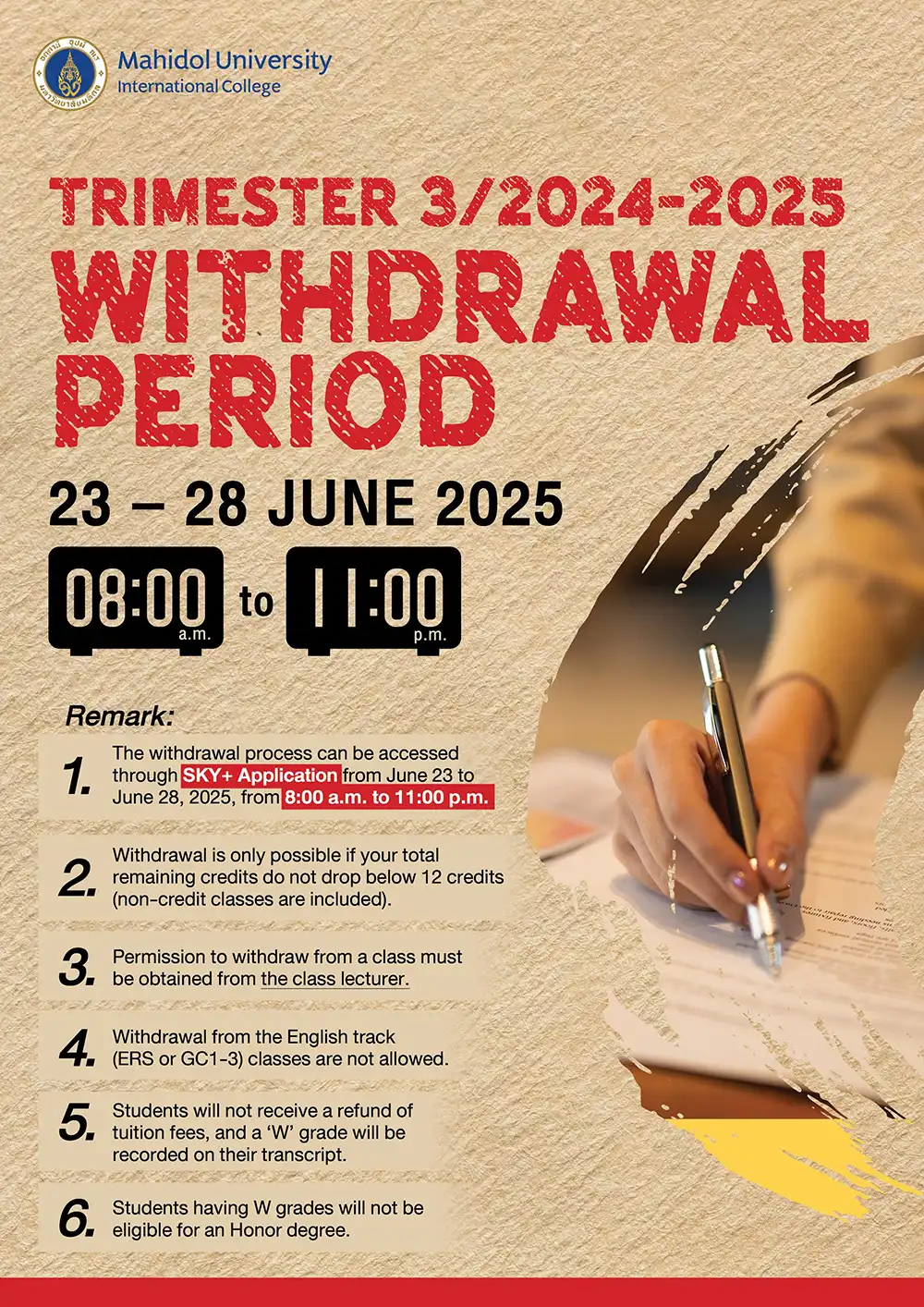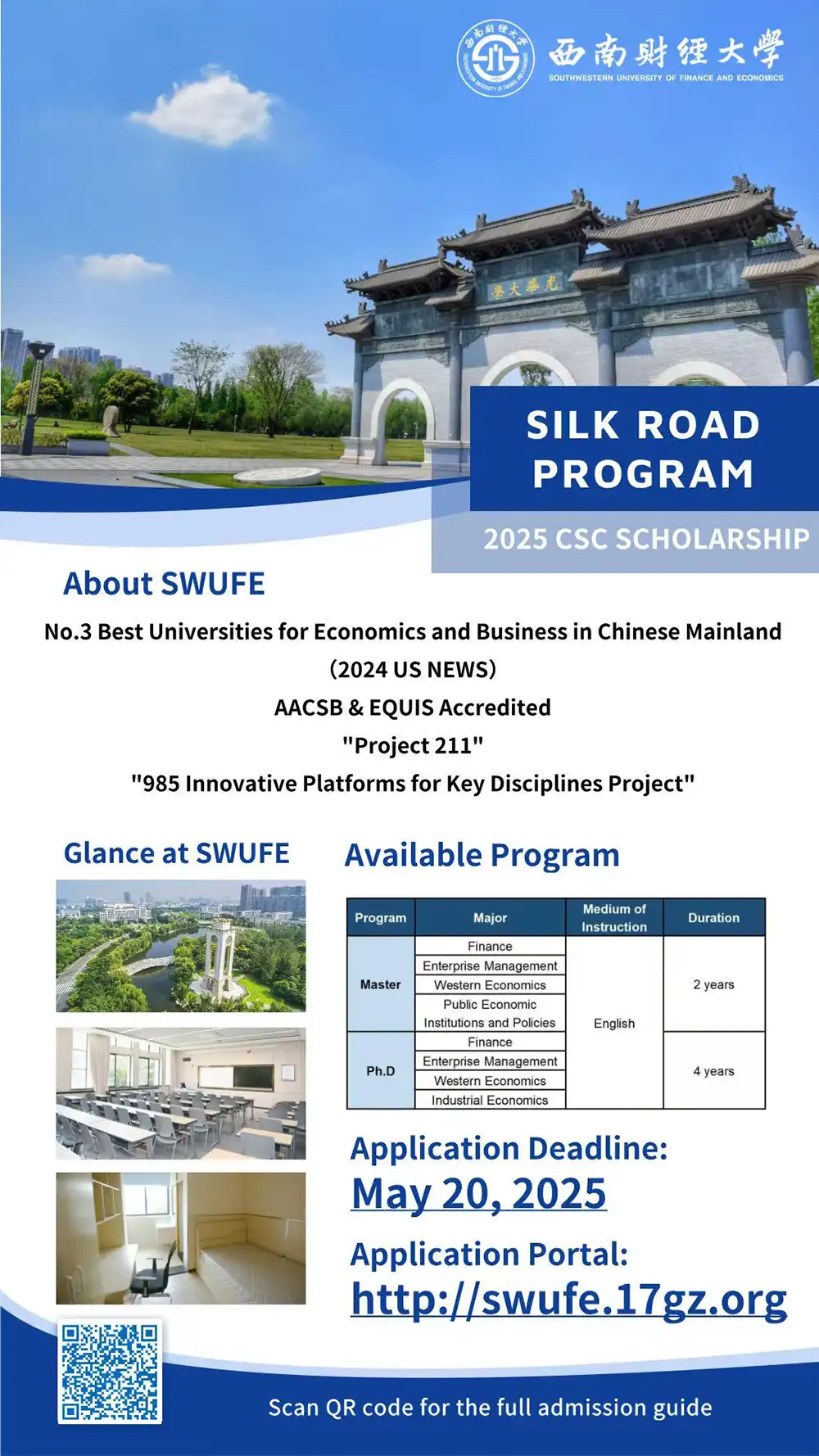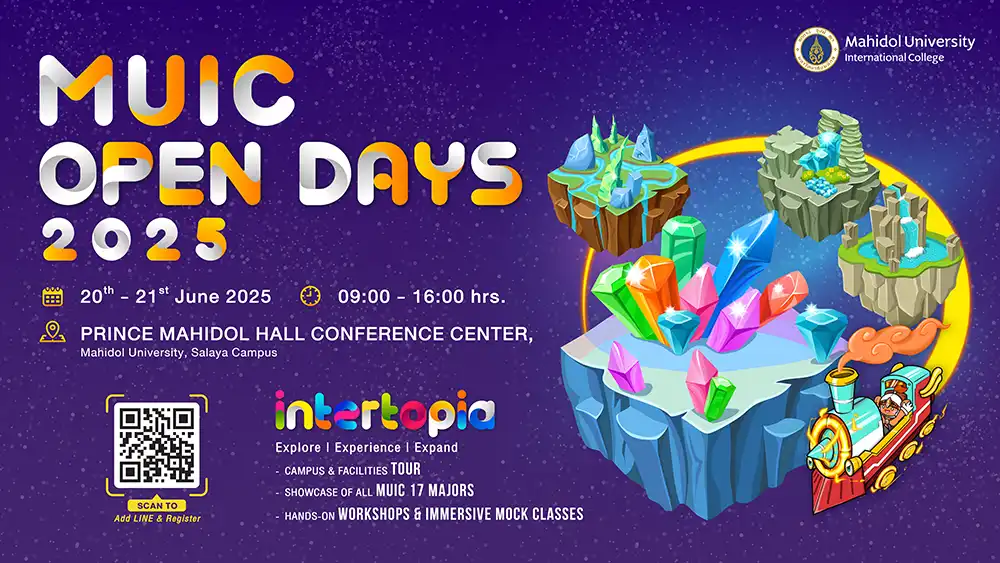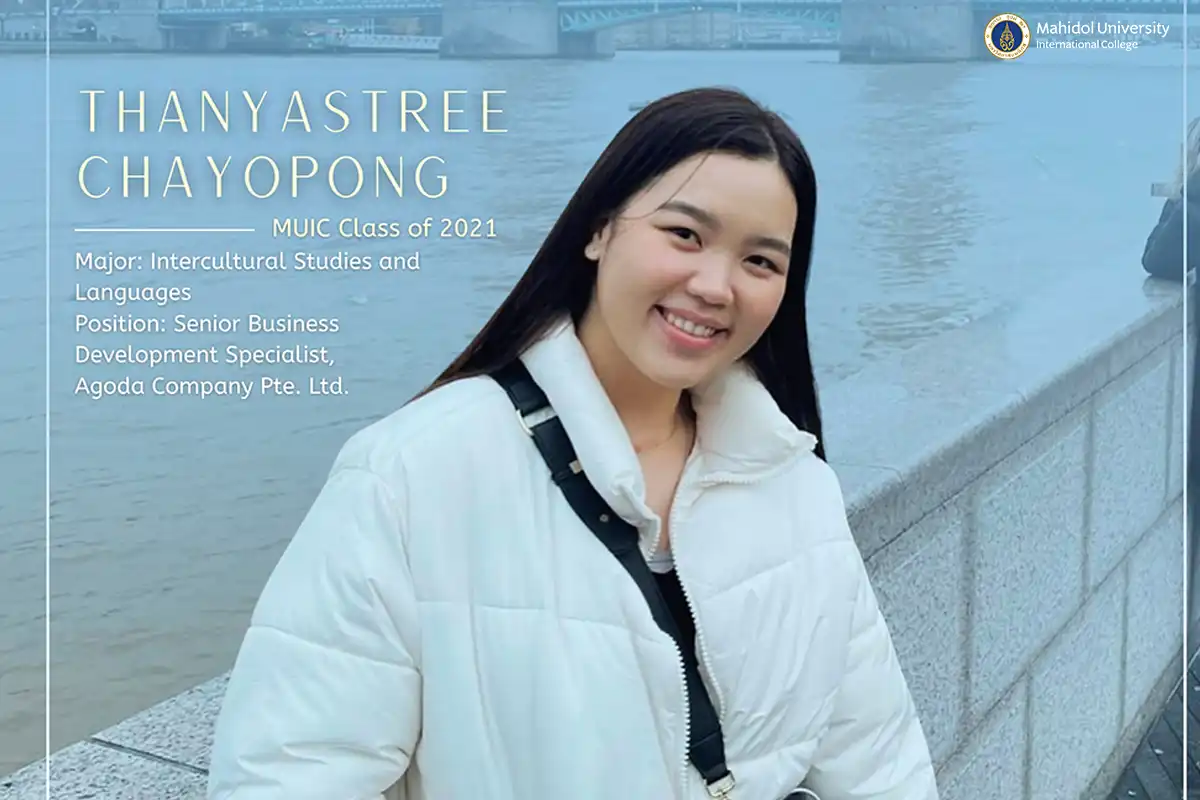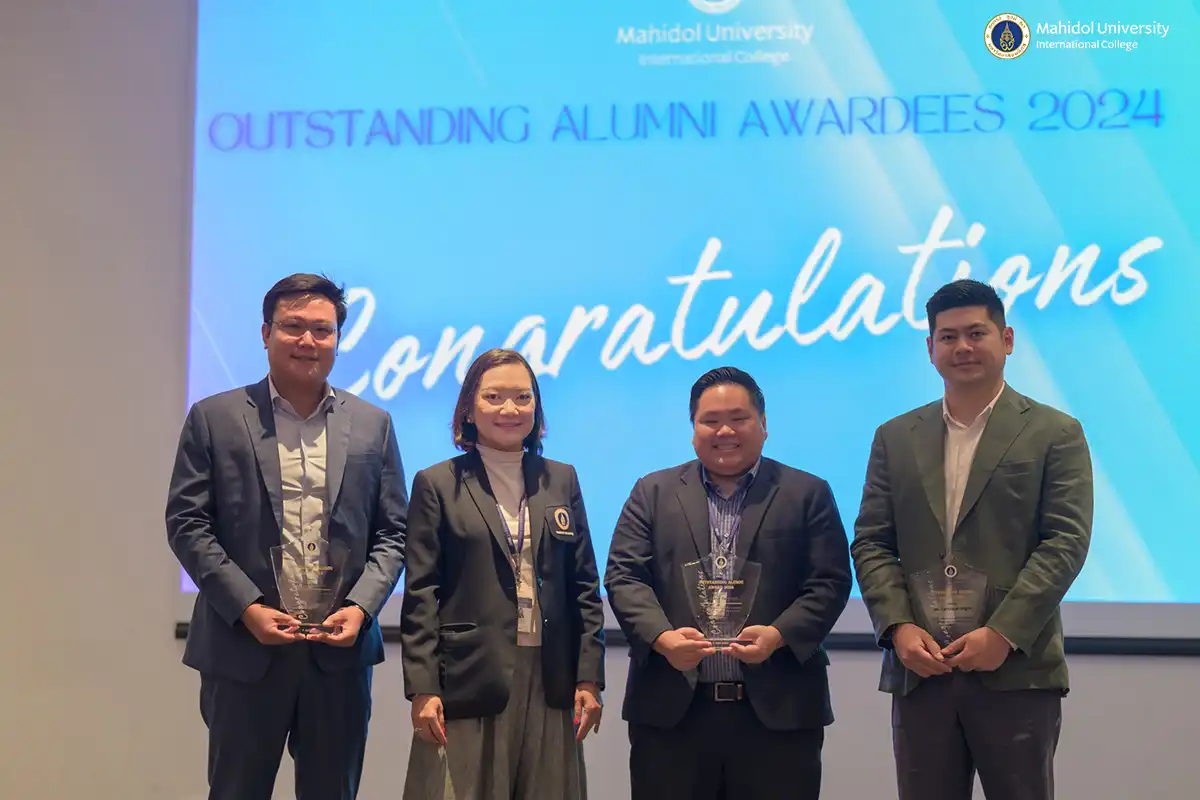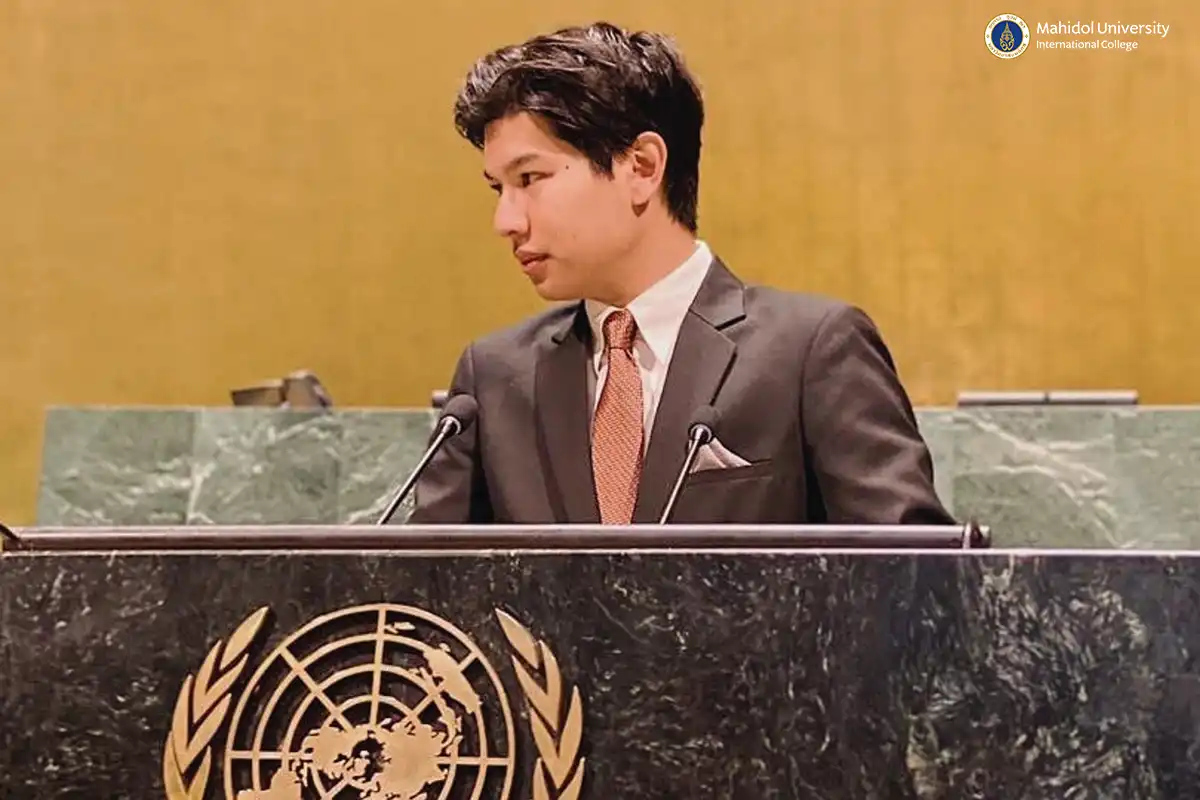Please choose a news and article category.
Recent MUIC Events
Withdrawal Period for Trimester 3/2024-2025
Gender Festival 2025
Explore the World of MUIC!
MUIC 360 Degrees
Beyond Food Waste: Building a Sustainable Future with Nantaporn “Ploy” Thirapongphaiboon
June 7, 2024 2024-09-03 4:52Beyond Food Waste: Building a Sustainable Future with Nantaporn “Ploy” Thirapongphaiboon
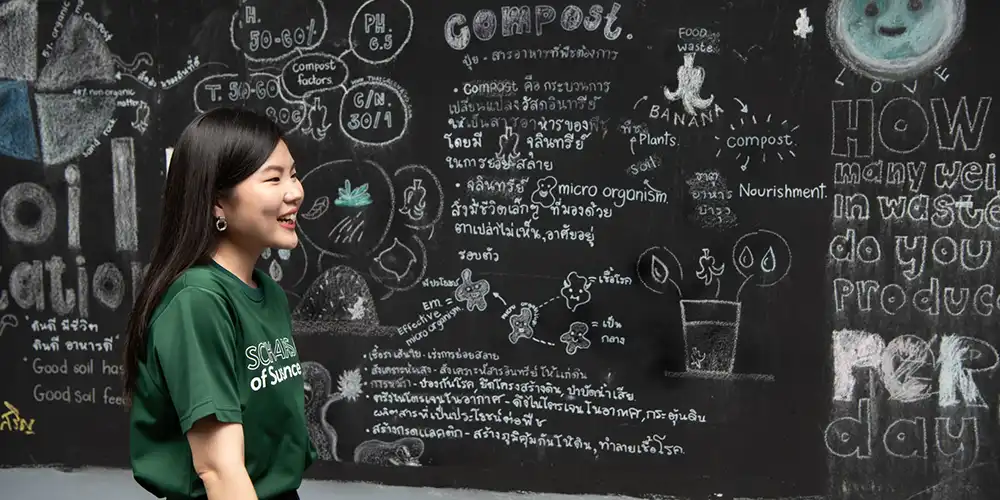
Beyond Food Waste: Building a Sustainable Future with Nantaporn “Ploy” Thirapongphaiboon
- Please introduce yourself and briefly explain what you currently do.
My name is Ploy, Nantaporn Thirapongphaiboon. I’m currently APAC Food Systems Partnership Associate Director, The Global FoodBanking Network and a Processed Food and Future Food Committee Member at the Thai Chamber of Commerce and Board of Trade Thailand. Before I moved to The Global FoodBanking Network, I worked for the Scholars of Sustenance Foundation (SOS) as a Senior Outreach Manager for almost 4 years. I’m also a natural chef as a side hustle – organizing healthy and sustainable cooking workshops and owning the healthy food blog called “Deliconscious” on Facebook and Instagram.
- What does ‘Scholars of Sustenance Foundation’ do?
Scholars of Sustenance Foundation (SOS) is the first food rescue foundation in Thailand and was established in 2016. SOS’s mission is to enhance the food system in the country to minimize needless loss of surplus food and improve food equity by rescuing high quality surplus food from farms and food-related businesses such as hotels, grocers, restaurants, and other suppliers and redistributing them to communities in need in Bangkok, Phuket, Hua Hin, and 53 other provinces the country every day.
To date, SOS’s food programs have rescued approximately 8 million kgs. of surplus food, served 33.6 million meals to over 3,400 communities, and reduced 20.25 million kgs. of CO2 creation if the food were wasted in landfills.
- You previously worked at Scholars of Sustenance. Can you tell us about your current role at the Global Foodbanking Network?
I recently started my new role at the Global Foodbanking Network as the APAC Food Systems Partnership Associate Director. In this capacity, I am expanding my work in food rescue and engaging with multiple stakeholders to reduce food waste throughout the supply chain. My responsibilities include supporting 18 food banks across 12 countries in Asia and the Pacific, with a focus on increasing surplus food supplies through local donations. Additionally, I will be collaborating with local food bank staff and multinational corporations, engaging with the food industry for donations, and developing purchasing programs to ensure that quality surplus food reaches those in need.
The Global Foodbanking Network (GFN) is a nonprofit organization dedicated to combating hunger by uniting and advancing food banks. Founded in 2006, GFN connects food banking organizations in over 50 countries, serving more than 30 million people annually. Food banks are a vital and effective solution for addressing hunger and changing lives while simultaneously reducing food waste and its environmental impact.
- What made you interested about your job in the sustainable management of food field?
My interest towards food system transformation began when I chose an elective course, Introduction to Food Science, during my final year at MUIC. Eventually, everything fell into place when I started to understand the importance of nutrition and food sources. So, I began to study more about food supply chains and the impact of sustainable production on health and our planet. After that, I was lucky to be involved with the sustainable protein startup and worked there for almost two years as my second job. I developed a strong passion in food sustainability since I have been working closely with diverse actors along the food supply chain – from farmers to consumers – in which I learned different problems and unique perspectives from them. Then, during the time I was in the UK for my master’s degree in 2018, I also learned about food waste problem for the first time. I volunteered with one charity in London called Food Cycle where I had to rescue surplus food from different supermarkets and then cooked them for occupants of the homeless shelter. That was the time I realized food waste is one of the serious global issues. I saw so many bananas that cannot be grown in that region being wasted every day. This blew my mind and made me continue fighting food waste ever since.
- What do you think is the best way to reduce food waste?
The best way to reduce food waste is prevention. If we follow the Food Recovery Hierarchy, the most preferred way is to prevent food waste to happen in the first place. For example, when people go on grocery shopping, it’s recommended to recheck what food we already have at home and how much is left then plan out ahead what food items to buy at the appropriate amount. This could help us avoid over buying which can cause food waste as we might not be able to finish all the purchased food in time. However, if the food is still safe and edible but we cannot finish it by ourselves, the second-best way is to donate extra food to people in need. And this is where SOS comes in.
- What are some of the biggest challenges you face in your role? How do you overcome them?
One of the biggest challenges is building strong collaborations and partnerships among four quadrants: private sector, government sector, civil society, and academia. To make a systemic change on the sustainable food waste management requires collective actions from all stakeholders – none of us can ever work alone. It was challenging to engage with the government sector in Thailand to make it pay attention and provide support to the cause. It took over two years for me and the SOS team to get some government agencies to join forces, which are the Pollution Control Department, the National Science and Technology Development Agency, the Ministry of Social Development and Human Security, and the Ministry of Agriculture and Cooperatives. The way we did was that we kept being assertive in finding the right person in each organization who has a strong interest and passion to work on food waste reduction and improve food security in the country. Once we found those persons, we consulted with them on the best way to work with the government sector, to understand their capacity and rooms for collaboration with the objective of providing nationwide benefits.
- What inspired you to start your healthy food blog?
I started my healthy food blog at the time I was studying for a diploma in natural chef when I was in London. I wanted to share knowledge about natural nutritious food options and inspire people to eat consciously for their health and the planet.
- Do you see any potential challenges or conflicts in balancing your work at SOS with your personal blog?
Not at all. Since my work at SOS is more about building partnerships, raising funds, and communicating about the causes, my personal blog allows me to do things that can complement well with the work at SOS whether it be making people understand the value of good food from great sources or inviting people to join my cooking workshops from time to time.
- Can you share a memorable moment in MUIC that ignited your passion and shaped your journey?
During my time at MUIC, I had always been an active member in the Volunteer Club since my freshmen year. I had the chance to take responsibility by working as the club secretary during my sophomore year. Throughout my four years with the Volunteer Club, I shared memorable moments with friends who were interested in making our society better. The experiences helped me to become a better person as I was required to work with a diverse group of people and ensured all activities aligned with the college’s policies. Additionally, by having experiences to visit different communities or underprivileged schools, I developed empathy to understand the root cause of different social problems and inspired me to take the journey in making a sustainable positive change for people and the world.
- How did your education and working experiences in the marketing field shape your career path?
My working and educational experiences provided me with the opportunity to work with multinational individuals and organizations which, in turn, broadened my skills in communication strategy to effectively draw the attention of, and approach different audiences from various sectors and backgrounds. I have been able to raise awareness among the public, expand a stronger network and build community engagement by promoting the understanding of sustainability of the food system and promoting equality among the food system actors.
>- What advice would you give to current students who are interested in working in the field of sustainable food and agriculture?
For those who are interested in and would like to work in the field of sustainable food system and agriculture, I want to share that even though you are not pursuing a food science degree, various skills and roles are required in many organizations anyway. For example, even though my background is in marketing and entrepreneurship, I found for myself that communications and partnership engagement are my strongest expertise. Therefore, I looked for the opportunity to use my skills to contribute to making positive impacts in the way I can. Self-awareness is very important. If you know yourself well, you will find the right path and the right job position that fits yours.
- Motto
“Work Hard, Stay Humble, and Be Kind.”
Name: Ms. Nantaporn Thirapongphaiboon
MUIC Class of 2015
Major: Marketing
Position: APAC Food Systems Partnership Associate Director, The Global FoodBanking Network


